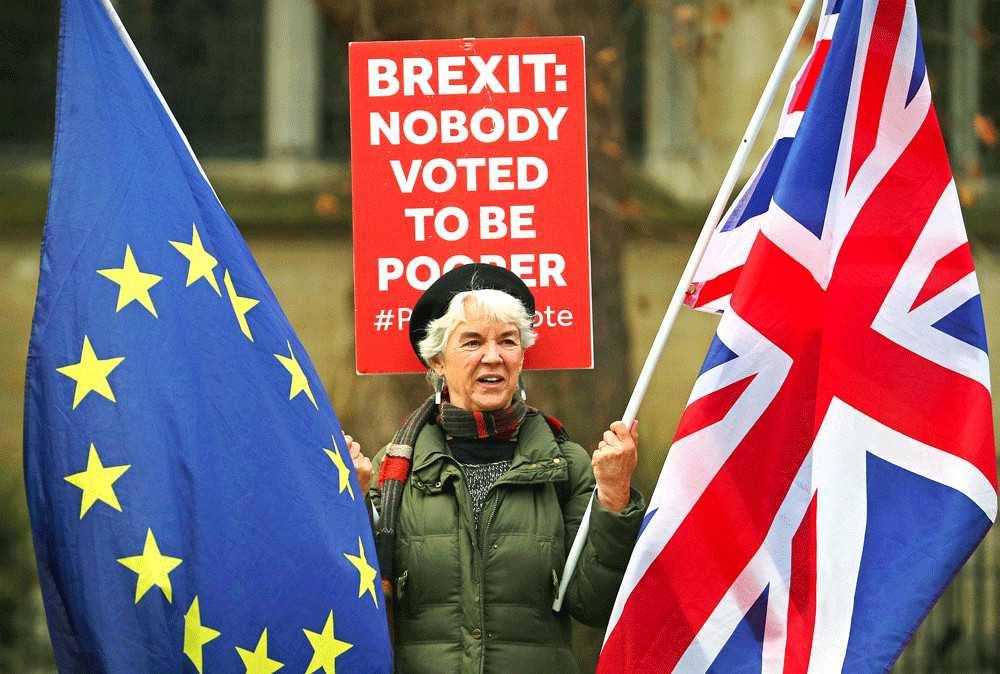EU, Britain intensify talks on post-Brexit future
29 June, 2020

The EU and Britain launch an strong five weeks of negotiations on a offer to define their post-Brexit relations on Monday, with London keen to wrap things up quickly.
The new round of talks in Brussels is definitely the first to be held face-to-face since the coronavirus shutdown combined with the two sides' entrenched positions to stall progress.
The meetings will alternate weekly between Brussels and London throughout July and by the end of August, as the teams learned on Sunday, the British negotiator David Frost will be promoted to become Primary Minister Boris Johnson's countrywide security adviser.
Some commentators immediately suggested this could break the British side's focus, but a UK spokesman insisted Frost's new title does not mean he will be distracted from the ongoing discussions with his EU counterpart, Michel Barnier.
"David will stay chief negotiator for the EU talks until contract is reached or until the talks end," the state said.
"This will stay his primary priority. As we've made clear we do not anyway hope these foretells run on in to the autumn."
Intensification
Hopes are that the intensification of the discussions can make it possible to deliver results after previous periods, of mainly videolink talks, achieved little.
But tempers have flared in recent days and Johnson insisted on Saturday that Britain will accept the consequences of no offer if common ground can't be found.
German Chancellor Angela Merkel -- whose government takes over the presidency of the EU in a few days -- has also sharpened her public stance, questioning whether London actually desires a deal.
"Of course it could be in the interest of THE UK and all member claims of the European Union to attain an orderly withdrawal," Merkel told the Sueddeutsche Zeitung daily.
"But that presupposes that both sides need this," she added.
Britain kept the EU on January 30 and a post-Brexit transition period where it still benefits from de facto EU membership should come to an end on December 31.
With out a new agreement, both sides would see ties decreased to minimum standards set by the World Trade Organization with high tariffs and serious disruptions to business.
London wants to agree on at least the bare bones of a trade deal this summer -- at least politically, if not legally -- so that you can give businesses clarity prior to the end of the year.
The EU is less pressed for time and believes that the required ratification by the European Parliament and others would need a deal by late October.
"The faster we are able to reach an arrangement, the better -- and there is no clear reason the wide outline of a political arrangement can not be reached in the summertime," a Number 10 source told AFP.
'Constructive, creative'
The format of talks on Monday could be more streamlined than the first rounds, which involved hundreds of civil servants fanned out into separate sessions on various topics.
From now on, EU chief negotiator Michel Barnier and his UK counterpart David Frost will business lead smaller teams with the political authority to break logjams.
"We will be constructive, as we've been, and respectful, and we will be ready to be imaginative to find common surface," Barnier informed the European Insurance policy Centre in Brussels last week.
In a tweet, Frost said he was arriving at Brussels in "good faith".
But he warned: "This should be a true negotiation plus some of the EU's unrealistic positions will need to transformation if we are to move forward."
The discussions will get started with a meeting between the two men at 0800 GMT and can continue through the entire week with short sessions on the most problematic topics.
These include the guarantees of good competition demanded by the EU found in fiscal, public or environmental matters to avoid the emergence of a low-regulation economy on Europe's doorstep.
Other sore points will be the role for the EU Court of Justice, access to British waters for European fishermen, in addition to the sort of the agreement.
This could be the very broad deal covering all areas of the relationship, as the Europeans want, or a simple trade agreement with small sectoral side discounts as sought by London.
Source: www.thejakartapost.com
